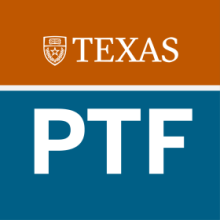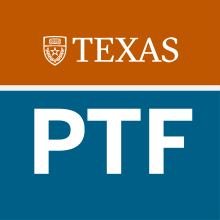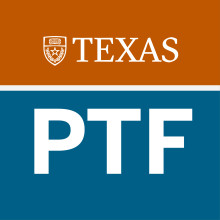Individual Fellow Initiatives

Scientific and Technical Writing for Experiential Learners and Instructors
Every writer needs a toolkit tailored to their profession or discipline. Student and instructor needs are not being met as it pertains to training and support for the development of scientific and technical writers.

Connecting Course Coordinators
This project aims to increase educational equity in large, multi-section undergraduate courses by supporting the faculty who coordinate them. These courses often serve diverse student populations and are foundational to many degree programs, yet variation across instructors and assessments can lead to uneven student outcomes. While playing a critical role in maintaining consistency across sections, course coordinators often face challenges such as balancing instructor autonomy and navigating differing faculty perspectives.

Improving Learning, Prioritizing Student Engagement, and Enhancing Identity Formation Through Hands-on Classroom Demonstrations
This project studies the benefits of implementing tailored hands-on experimental classroom demonstrations to highlight real-world applications of concepts in lecture-based courses. The motivation for this work stems from the limited opportunities undergraduate engineering students have to visualize contemporary applications discussed in core courses as well as to develop engineering-based intuition before the junior year.

Collaborative Learning Between Designers & Developers
User experience (UX) designers in industry create design prototypes and hand them off to software developers to implement in code which is returned to the designers for feedback. Typically, designers follow an iterative cycle comprising the circle of design, prototype, and test. This cycle is repeated until the product meets the desired user experience.

Interprofessional Simulation In Pediatric Medicine
Interprofessional education (IPE) is an essential component of all healthcare training and has a growing role in the UT College of Pharmacy curriculum. Additionally, the use of simulations in IPE can provide students with real-world, real-time scenarios that can help build interpersonal skills and pharmacotherapy knowledge in students.

Common Ground: Strategies for Student Achievement in the Post-COVID Era
This initiative addresses the challenge of balancing student accomplishment with the necessary accommodations for student success, particularly in the post-COVID era. The project will collect empirical data from students, faculty, and advisors at the Moody College of Communication to explore how to maintain high academic standards while incorporating essential accommodations for students facing challenges such as mental health issues, food insecurity, and housing instability.

Does Increasing Course Depth While Reducing Breadth Improve Learning in College Students?
Student-centered learning strategies have been effectively used to increase academic performance and learning in students. Educators have hypothesized that course content reduction can also improve student learning. However, support for this idea is lacking. In the present project, I am planning to assess whether a content reduction strategy increases the academic performance of upper-division stem students at the University of Texas-Austin.

Characterizing Complexity and Frequency of Feedback Given to Students: What Actually Helps Achieve Learning Outcomes?
This project is aimed at improving learning outcomes in programming courses at UT Austin, specifically targeting ECE312 (Software Design and Implementation I) and ECE360C (Algorithms), but that can potentially be expanded to other programming courses and beyond. The project is designed to enhance students' understanding of fundamental concepts by characterizing the complexity and frequency of feedback provided during completion of assignments.

Compassionate Pedagogy and Experiential Learning
The primary goal of this project is to enhance student engagement and participation in the learning environment, especially those who have may have been marginalized by conventional approaches to teaching. This project aims to support, encourage, and train faculty to incorporate compassionate pedagogy (CP) and experiential learning (EL) into their teaching, with the goal of promoting student connection and faculty creativity.

Disability Justice as Pedagogical Practice
Within social work curriculum, the topic of disability is either explicitly absent or medicalized. The lack of a rich understanding of disability as a cultural experience that intersects with other cultural experiences is concerning given our ethical guidelines of cultural competence and equity. Additionally, not only are students excluded via this omission, but so are faculty, staff, and social workers working in the field. Approximately a quarter of the population identifies as having a disability, yet our curriculum barely acknowledges their experiences.

QR Learning for addressing social and racial injustice
The current proposal envisions developing alternative pedagogical materials for the “Measuring Racial Inequality” course, written in plain language and accessible to students from social sciences/humanities and underserved communities and families.

SafeTeach Collaborative
The SafeTeach Collaborative is a learning community that aims to improve faculty and graduate students' ability to handle classroom safety issues by developing their knowledge, self-efficacy, and instructional strategies. The program utilizes interactive methods including role-play exercises, scenario-based learning, and case study analyses to engage participants in realistic safety situations. The project's design fosters peer support networks, ideally providing participants with ongoing resources for addressing safety concerns.

Implementing Computational Modules into the Materials Science and Engineering Undergraduate and Graduate Curricula
The development of increasingly powerful computational resources has made computational competencies new core forms of literacy that should be formed as part of basic education across all STEM fields.

Artful Learning: Integrating Art into Teaching Practice
This project aims to transform academic instruction by integrating art into the classroom. We believe that art can make subjects more engaging and help students connect with the material on a deeper level. By integrating diverse forms of art—such as virtual art, music, film, theater, and more—into the curriculum, we aim to create a more interactive and stimulating learning environment while also supporting students' mental health through therapeutic art sessions.

Building a Network of Large-Class Educational Leaders Across Campus
Each year I attend Teaching Discovery Days and Texas Teach-Up and leave motivated to try new teaching practices. The majority of the practices I observe during Texas Teach-Up, hear about at conferences, or read about in the literature need substantial adaptations to work in my large classes. Figuring out how to make new practices work well and remain manageable sometimes seems insurmountable. Discussions with others who teach large courses often provide insights and ideas, but in any given department at UT there may be just one or just a few professors who teach these large class sizes.

Mentored 2 Mentor
This project focuses on training Clinical Audiology Doctoral students (AuD) to be clinically certified supervisors upon entering the field post-graduation. According to the American Speech-Hearing Association (ASHA), Texas ranks 48 out of 50 states for the number of clinically certified audiologists who are needed to supervise doctoral students in order for those students to have ASHA-approved hours (https://www.asha.org/siteassets/surveys/audiologist-and-slp-to-populati…).

Elements of Computing Concentrations
The Computer Science department provides CS classes to the whole university via our Computer Science "Elements" program. The Elements sequence can be started by any student in any major with no prerequisites; later Elements courses only have prerequisites from earlier Elements courses. Some students choose to take just 1 or 2 CS classes in order to learn some programming, and others choose to take 18 hours in order to earn the Elements of Computing Certificate. The CS Elements program serves a very diverse population of students, in terms of backgrounds, majors, and goals.

Strengthening the Sustainability Studies Degree
Sustainability Studies graduated its first sizeable cohort in 2022, and the program has yet to undergo a comprehensive review. Conversations with students revealed their desire for better access to the professional field of sustainability across the sectors of non-profit, government, and business. This is an area that the current structure of the degree does not adequately address. To address these concerns, I am proposing a three-pronged approach. My first initiative is to build a database of internships across the three sectors mentioned above.

Teaching Law and Religion
The aim of my proposed project is then the integration of the seemingly disparate studies of law and
religion. The study of both is an important branch of comparative law and global legal history that I aim

Teaching Engineering through Murder Mysteries and Personalized AI Tutor
CE 357: Introduction to Geotechnical Engineering is a third year required undergraduate course that has traditionally been a challenging course for students due to its abstract nature. The average course rating for CE 357 is 3.8 in the last twenty years. I have successfully transformed the lecture modules to achieve a significant increase in interest and students’ performance in the course. Although preliminary work looks promising, I want to scientifically evaluate the effectiveness of the course and publish the findings.

Offering Real-World Opportunities for Students Enrolled in Statistics and Data Science Undergraduate Research
The primary goal of this community-based service project is to provide experiential learning opportunities for undergraduates interested in statistics and data sciences while supporting the broader Austin-area community. Coordinating with local organizations, students enrolled in some of our SDS courses are gaining hands-on experience in data analysis while exploring authentic contexts. This innovative and collaborative effort provides a community-based model that allows students and local organizations to co-develop and answer real-world research questions.

Early Exposure to Data Skills in Introductory Biology Sequence
Biology continues to be seen as a field for science-interested, but math-disinterested students. However, due to the surge in data use in all biology careers, and the focus in research on sequence data, there is a strong need for data skill development in biology degree programs. Math anxiety poses a specific challenge for biology education. A suggestion to overcome this, is an early introduction to data skills in the two-course sequence of Introductory Biology.

Improved Student Evaluations of Teaching
Student evaluations of teaching (SETs) are one of the official means to gauge the performance and effectiveness of an instructor at higher-education institutions. They are often used for promotion/tenure decisions as well as to guide faculty into becoming effective instructors. But the question is whether, as currently implemented at UT Austin, SETs are reliable indicators of (a) effective teaching, and (b) long-lasting, impactful learning?

Archived Initiative
This initiative has been archived in compliance with University policies and legal requirements related to communications and web presence. If you have questions about this initiative, or any others, please reach out to the Center for Teaching and Learning for more information.

The “Social/Wellness Module:” Providing Space for Wellbeing and Social Learning for Incoming UT Students
My project addresses the lack of built-in social/wellness-oriented interactions in introductory courses for

